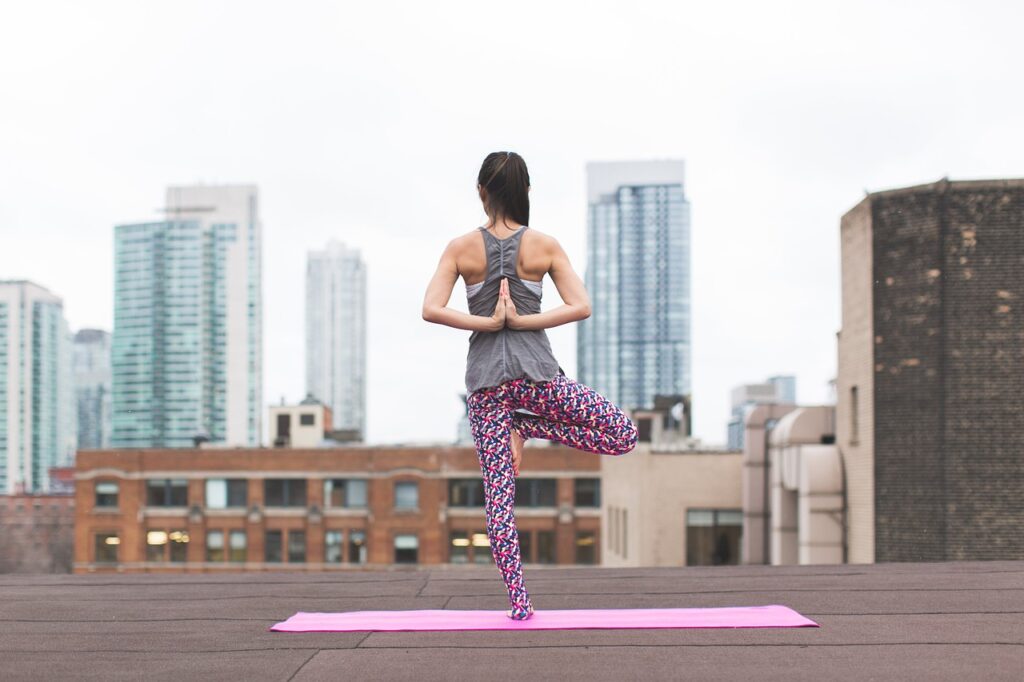Evidence Based
This article relies on solid scientific evidence, authored by experts, and thoroughly fact-checked by specialists.
Our team of licensed nutritionists and dietitians strives to maintain objectivity, impartiality, and honesty. We aim to present a fair representation of both sides of the argument.
Scientific references are included throughout this article. The numbers in parentheses (1, 2, 3) are clickable links to peer-reviewed scientific papers. These sources further support the information provided.

What Is Anxiety?
Anxiety has become a common problem in today’s fast-paced and demanding world. It can have a significant impact on our overall well-being and quality of life. Fortunately, there are several effective strategies that can help us reduce anxiety (1
PubMed Central
Highly respected database from the National Institutes of Health
Go to source ) and restore a sense of calm and balance. In this blog post, we will explore ten proven ways to alleviate anxiety and promote mental well-being.
10 Ways to Reduce Anxiety
1. Practice Deep Breathing Techniques
Deep breathing exercises are an excellent tool for reducing anxiety. When we’re anxious, our breathing tends to become shallow and rapid, which can exacerbate our symptoms. By practicing deep breathing techniques, such as diaphragmatic breathing or box breathing, we can activate the body’s relaxation response and promote a sense of calm. Take slow, deep breaths, inhaling through your nose and exhaling through your mouth. Repeat this process for a few minutes, focusing on the sensation of your breath entering and leaving your body.
2. Engage in Regular Physical Exercise
Physical exercise is not only beneficial for our physical health but also for our mental well-being. Engaging in regular exercise releases endorphins, which are natural mood-boosting chemicals in the brain. It also helps to reduce the levels of stress hormones in our body. Aim for at least 30 minutes of moderate-intensity exercise, such as brisk walking, jogging, or cycling, on most days of the week. Find an activity you enjoy and make it a part of your daily routine.
3. Prioritize Sleep and Establish a Routine
A lack of quality sleep can significantly contribute to feelings of anxiety. Establishing a regular sleep routine and prioritizing adequate rest can help alleviate anxiety symptoms. Aim for 7-9 hours of uninterrupted sleep each night. Create a relaxing bedtime routine by avoiding electronic devices before bed, keeping your bedroom cool and dark, and practicing relaxation techniques such as meditation or gentle stretching.
4. Limit Consumption of Stimulants
Stimulants such as caffeine and nicotine can worsen anxiety symptoms. They stimulate the nervous system and can increase feelings of restlessness and irritability. Limit your intake of caffeinated beverages like coffee, tea, and energy drinks. Opt for decaffeinated options or herbal teas instead. Quitting smoking or reducing your nicotine intake can also have a positive impact on anxiety levels.
5. Practice Mindfulness Meditation
Mindfulness meditation is a powerful technique for reducing anxiety and cultivating a sense of inner peace. It involves focusing your attention on the present moment without judgment. Regular practice can help you become more aware of your thoughts and emotions, allowing you to respond to them in a non-reactive and calm manner. Start by dedicating a few minutes each day to sit quietly and focus on your breath or engage in guided mindfulness meditation using apps or online resources.
6. Maintain a Balanced Diet
The food we consume plays a crucial role in our mental health. A balanced diet rich in whole foods can support optimal brain function and help reduce anxiety. Include foods that are high in omega-3 fatty acids, such as fatty fish, walnuts, and flaxseeds. These healthy fats have been linked to improved mood and decreased anxiety. Avoid or limit processed foods, sugary snacks, and excessive alcohol consumption, as they can negatively impact your mood and increase anxiety symptoms.
7. Seek Social Support
Connecting with others and seeking social support is essential for managing anxiety. Sharing your feelings and concerns with trusted friends or family members can provide a sense of relief and help you gain a different perspective on your worries. Consider joining support groups or seeking professional help through therapy or counseling. Remember, you’re not alone, and reaching out for support is a sign of strength.
8. Engage in Relaxation Techniques
Relaxation techniques, such as progressive muscle relaxation and guided imagery, can help calm your mind and reduce anxiety. Progressive muscle relaxation involves tensing and releasing different muscle groups to promote deep relaxation. Guided imagery uses visualization techniques to create a mental image that promotes feelings of peace and tranquility. Explore different relaxation techniques and find what works best for you.
9. Limit Exposure to News and Social Media
Constant exposure to news and social media can contribute to heightened anxiety levels. Limit your consumption of news updates, especially before bedtime, as it can interfere with your sleep and overall well-being. Set boundaries for your social media usage and consider taking regular breaks from these platforms. Focus on engaging in activities that bring you joy and promote relaxation instead.
10. Practice Self-Care
Self-care is crucial for managing anxiety and maintaining overall well-being. Take time each day to engage in activities that nourish your mind, body, and soul. This can include activities such as taking a warm bath, reading a book, practicing a hobby, or spending time in nature. Prioritize self-care as an essential part of your routine and make it non-negotiable.
The Bottom Line
In conclusion, anxiety is a common challenge in today’s fast-paced world, but it doesn’t have to control our lives. By incorporating these ten strategies into our daily routine, we can reduce anxiety and cultivate a greater sense of well-being. Remember that everyone is different, so it may take time to find the combination of techniques that work best for you. Be patient, be kind to yourself, and seek professional help if needed. You deserve to live a life free from excessive worry and anxiety.




